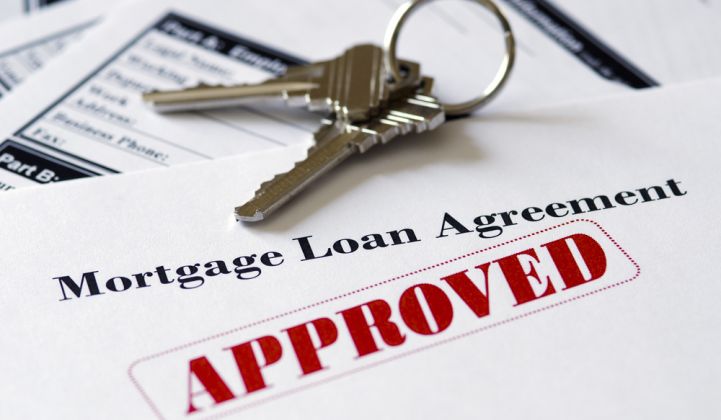Tying home energy-efficiency upgrades to property tax bills has become incredibly popular in just the past few years, at least in California.
Property-assessed clean energy (PACE) programs for houses have morphed into a $2 billion industry nearly overnight. Now, Fannie Mae is offering a new program that could bring another flavor of property-tied energy improvements to the wider U.S. market.
Fannie Mae’s HomeStyle Energy Program is a mortgage option that allows borrowers to finance clean energy upgrades equal to up to 15 percent of the as-completed appraised value of the home. Solar PV is also an option, along with energy- and water-efficiency retrofits. It is available for single-family homes and multifamily homes of up to four units.
HomeStyle Energy is different than PACE.
PACE is an assessment tied to the property’s tax bill. HomeStyle, on the other hand, can be added at the time of getting a mortgage or refinancing. HomeStyle Energy can be used for new projects or to take higher-interest unsecured loans or PACE loans and refinance them or roll them into a potentially lower-cost mortgage.
“Mortgages are one of the cheapest ways to finance,” said Vikram Aggarwal, CEO of EnergySage, an online solar marketplace. “It could be a meaningful development.” Lower loan rates tied to mortgages could make solar incredibly attractive as residential system costs are expected to fall by 30 percent, to about $2.13 per watt by 2020, according to GTM Research.
The option will not be for everyone, but could be a boon to homeowners who are looking to do retrofits or add solar as they move into a house.
“We think it's a good thing that Fannie Mae is recognizing that homeowners see value in energy-efficiency upgrades,” said David Gabrielson, executive director of PACENow. But he cautioned that it would change the nature of the PACE financing for those who use it to refinance PACE loans, as it would turn a property tax-based obligation into a loan that would have to be paid off if the property is sold.
Of course, the devil is in the details. One upside already is that the product is open to all Fannie Mae-approved lenders, as opposed to the HomeStyle Renovation product, which covers broader home renovations but requires lenders to go through a special approval process.
Another issue is how complicated it may be for installers and contractors to sell and for homeowners to understand. If refinancing takes too long, it could dampen the enthusiasm of installers, real estate agents or contractors -- even if the price is right.
The upgrades cannot drag on -- energy improvements must be completed within 180 days after the mortgage note is issued. The improvements also have to come with an energy report, whether a Home Energy Score Report or a Home Energy Rating Systems report, and must specify the monthly savings to the borrower. A report is not required for some basic energy and water improvements, such as insulation or low-flow showerheads, if they total less than $3,500.
If big mortgage lenders get on board, this could be a popular alternative to PACE, as residential PACE programs are only active in a handful of states so far and require legislation to be initiated. It could also give independent solar installers a lower-cost option for their customers who are willing to refinance.
If it isn’t marred by complexity, Aggarwal is bullish about the potential for HomeStyle Energy financing. “This could be a very, very attractive option for homeowners willing to go through paperwork,” said Aggarwal. “This should bring [the cost] down dramatically."



